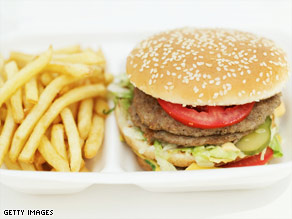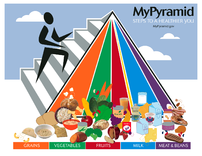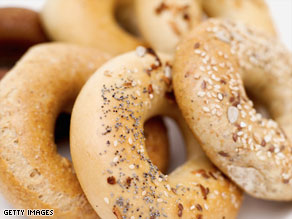| |||||||||||
| Please do not reply to this message. To learn more about Yahoo!'s use of personal information, including the use of web beacons in HTML-based email, please read our Privacy Policy. Yahoo! Mail is located at 701 First Avenue, Sunnyvale, CA 94089. |
| |||||||||||
| Please do not reply to this message. To learn more about Yahoo!'s use of personal information, including the use of web beacons in HTML-based email, please read our Privacy Policy. Yahoo! Mail is located at 701 First Avenue, Sunnyvale, CA 94089. |

The introduction of prophylactic HPV vaccines does not diminish the importance of HPV screening, they emphasize. "Even when the vaccines become affordable and widely used, they will not substantially decrease rates of cervical cancer for decades because of the long latency between infection and cancer," they write.
In this study, researchers evaluated the effectiveness of a single round of HPV testing, cytologic testing, or VIA in reducing the incidence of cervical cancer and associated mortality rate in women residing in rural India.
HPV Test Most Objective and Reproducible
Overall, the researchers found HPV testing to be the most objective and reproducible of all cervical screening tests, as well as being less demanding in terms of training and quality assurance. A drawback is that it is more expensive and time-consuming than other types of screening tests, and it requires a sophisticated laboratory infrastructure." [Medscape ]
"People who live in the tropics have more baby girls compared with those living in other parts of the world, work reveals.

 Image via Wikipedia
Image via Wikipedia


 Image by Cesar R. via Flickr
Image by Cesar R. via Flickr
"Study shows water accelerates the metabolism and encourages weight loss Losing a few pounds or simply keeping in shape is often not only a question of strict dieting and working out as often as we can find the time for it. A healthy attitude towards food, moderation and a few easy tricks that all of us can do also come extremely in handy in our never-ending struggle against the extra pounds. Drinking a glass of water before breakfast is one of those tricks, experts tell us.
The importance and many benefits water has on our body can truly never be stressed enough. Hydration is key both in terms of our health and the appearance of our skin, so we should all start drinking more water throughout the day. Yet it can also help us lose weight, a new study comes to show, by accelerating the metabolism and helping our body “wash” the fat away more easily.
The study included premenopausal overweight women who started drinking water before breakfast in increasing quantities. The more water they drank, the more their weight loss efforts were sustained, results have shown. The conclusion can only be one: a glass of water (approximately eight ounces) in the morning before breakfast, coffee or tea is just what the doctor recommends for excellent health and a slim figure.
“After sleeping for seven to eight hours your body needs water as well as food – being slightly dehydrated can actually slow down your metabolism. Before downing your latte, green tea, or juice, have a glass of water because […] well-hydrated cells not only work better, but they help you flush out fat.” FitSugar also recommends, based on the findings of the latest study.
Nevertheless, if losing weight is not on our radar right now, water also has countless other benefits. For starters, it keeps the skin on the face well hydrated, thus protecting it from the winter cold and the harsh spring winds. Since the skin is made of 70% water, beauticians recommend about 8 glasses a day for a glowing, healthy and irresistible countenance, the kind no cream – no matter how expensive – can get." (Softpedia News)



"Swedish researchers followed 46,000 men from the age of 18 for 38 years. Being obese or smoking more than 10 a day doubled the premature death risk, the British Medical Journal reported.
Being overweight, seriously underweight or smoking 10 or less raised it by 30% - and interestingly the fat non-smoker ran the same risk as the fat smoker.
Those who were underweight - with a Body Mass Index (BMI) of less than 18.5 - had no increased risk of dying early, regardless of whether they smoked or not.
But the team from the Karolinska Institute in Sweden found that those who were seriously underweight - with a BMI of 17 or less - ran the same risk as those who were overweight.
 WebMD reports
WebMD reports "Eating a tiny bit of peanut flour every day may increase peanut tolerance in children who are allergic to peanuts, a new study shows.
"Eating a tiny bit of peanut flour every day may increase peanut tolerance in children who are allergic to peanuts, a new study shows.
But the scientists who conducted the study aren't recommending their strategy as a do-it-yourself treatment for peanut allergy.
"However encouraging, these results are preliminary and [the technique] should not yet be attempted outside clinical trials," the researchers write online in the journal Allergy.
The study was very small -- it included only four children 9-13 with peanut allergies. But last year, other researchers reported success when they tried a similar approach with 20 U.S. children with peanut allergies.
In the new study, conducted in England, the children took allergy tests and the researchers gauged the maximum dose of peanuts that they could tolerate without having a severe reaction. That test showed that the children couldn't tolerate a single peanut without quickly having an allergic reaction; one child needed an adrenaline shot after developing anaphylaxis.
Each child went home with instructions to eat 5 milligrams of peanut flour mixed with yogurt each day, gradually adding more peanut flour over the next six weeks. The basic idea was to ramp up their tolerance, little by little.
After six weeks of eating the peanut flour-yogurt combination, which didn't prompt any major problems, the researchers retested the children's maximum tolerable peanut dose. All four children could tolerate at least 10 peanuts at that point.
That doesn't mean that their allergy is gone, but it does provide a bit of a margin in case they accidentally consume a few peanuts, note the researchers, who included Andy Clark, a doctor at Addenbrooke's Hospital in Cambridge, England.
"We've got them to a point where they can safely eat at least 10 whole peanuts. It's not a permanent cure, but as long as they go on taking a daily dose they should maintain their tolerance," Clark says in a news release."

Few years back Scientists were claiming that, wine will reduce your HDL and thereby reducing the rate of Cardiovascular accidents. Now here is the news which might hurt a bit Alcohol lovers specailly women..
Medscape Medical News has posted, "Even low to moderate alcohol consumption significantly increases the risk for cancer, both overall and at specific sites, in women, according to results from the Million Women Study conducted in the United Kingdom.
The women in the study were middle-aged (median age, 55 years), and 75% said they drank alcohol, consuming — on average — 1 drink per day (100-g alcohol). Very few drank more than 3 or more drinks per day, and there was no difference between wine or other drinks, such as spirits, although most women drank wine.
Each drink significantly increased the risk for cancer, the researchers found.
For such women in developed countries, the researchers estimated a background incidence of 118 cancers diagnosed per 1000 women up to the age of 75 years.
Consuming 1 drink per day increased this to an extra 15 cancers per 1000 women, and 2 drinks a day increased it to an extra 30 cancers per 1000 women, they report. Most were breast cancers, but the risk for cancer was also increased for the liver and rectum, and for the mouth and throat in women who also smoked.
Cancers at these sites have been linked to alcohol in the past, but this study shows that even low to moderate consumption significantly increases the risk, lead author Naomi Allen, DPhil, from Oxford University, in the United Kingdom, told Medscape Oncology."

The diets tested in the study included the same types of foods, but in different proportions, and were tailored to patients such that overall calorie consumption was reduced by approximately 750 calories per day, with each diet including a different macronutrient composition:
Participants were advised to exercise for at least 90 minutes per week, at a moderate level, and were offered counseling sessions every eight weeks, with group sessions held weekly or biweekly over the course of the study.
In all, 80% of subjects completed the trial, and 14% to 15% of subjects managed to lose at least 10% of their initial body weight. Subjects randomized to different groups reported similar degrees of satisfaction, hunger, and satiety. All the diets reduced risk factors for diabetes and cardiovascular disease at six months and two-year follow-up. At the two-year mark, the low-fat diets and the highest carbohydrate diet fared better than the high-fat diets and low-carb diet in terms of reducing LDL cholesterol. By contrast, the lowest carbohydrate diet improved HDL-cholesterol levels more than the highest carbohydrate diet. All of the diets produced slight improvements in blood pressure and decreased the number of patients with metabolic syndrome. All, with the exception of the highest carbohydrate diet, decreased fasting serum insulin levels."

By Melissa Pheterson
A sound body deserves a sound mind. But if you're feeling blue, seeing red or seeking refuge from the proverbial skies of gray, you can't enjoy the optimal health you work so hard to achieve. Women are more likely than men to undergo depression — especially around menopause, perhaps due to hormonal changes. Genetics are a risk factor, too. And with a 15 percent mortality rate, depression is a serious problem.
While we can't tinker around inside our skulls, remember that feeling good physically can "rub off" on the brain. Here are strategies to feel at peace with the world.
1: Feed your brain
"The most important thing really is self-knowledge — recognizing patterns and understanding what lies beneath," says Saltz. "We're often living an old story of something that happened long ago." To break the repetition, step out of the story to review it from an outsider's perspective. Give yourself a reality-check to find the root of the problem. And remember, the best vantage point can often be found on the therapist's couch, where you can get help re-evaluating the situation.
That's Liponis' tag for love and laughter as antidotes to fear, anger and despair — "emotions that signal the body is threatened, in danger," he says. "The solution is to cultivate a deep emotional connection." That doesn't just mean romance. Adopt a pet, call your parents, throw yourself into your garden. Or discover a new activity that might sweep you into a new circle of friends.
Among new friends or old, reach out to others. Support them in their own personal endeavors, and project a can-do attitude; the good vibes will come full-circle to reward you, too. If you feel responsible to show up for your weekly exercise-walking group, you're more likely to commit."(Your Total Health)

Fast-food restaurants may be associated with stroke risk, a new study says. Some say there's not enough evidence.
They also mapped the county's 262 fast-food restaurants and then adjusted for socioeconomic status and demographics and found a statistically significant association.
"The association suggested that the risk of stroke in a neighborhood increased by 1 percent for every fast-food restaurant," the authors wrote in a poster presented at the American Stroke Association's International Stroke Conference.
Residents of neighborhoods in the 75th percentile of fast-food restaurants had a 6 percent increased risk of stroke compared with residents of the 25th percentile of such eateries, according to the study, which was paid for by the National Institute of Neurological Disorders and Stroke."
Read full article here
 Image via Wikipedia
Image via Wikipedia

